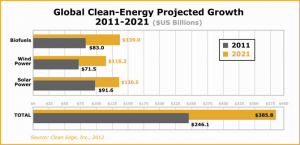Following the launch of the UAE’s Clean Energy 2050 plan the UAE is going to be key to the International Energy Agency’s (IEA) goal of satisfying up to a third of global power demand with renewables by 2060, writes Neil Petch, chairperson at Virtugroup.
But how – and why – does a country built on oil go about becoming one of the main players in renewables? In this article we’re taking a specific look at the solar energy space in the UAE and how this is playing a part in helping the country achieve its overall renewable energy goals.
Why go solar in the land of black gold?
With the Middle East home to more than half of the world’s crude reserves, it’s natural to wonder why one of its biggest oil producers would be so keen to up its production of solar power. In actual fact, it is the region’s reliance on oil that is driving the shift. Over the past five years, the UAE has seen a growing realisation among its oil exporters that investing in solar energy has the potential to reduce the domestic consumption of oil – freeing up additional resources for export.
When you consider that some countries in the region burn as much as a third of their oil output domestically, it begins to become clear just how big an economic impact solar power can have on the UAE. Satisfying just 10% of the region’s total energy demand with solar power has the potential to generate annual savings of just under $2 billion by 2030 – and once the health and environmental savings are taken into account the figure could be closer to $4 billion.
While seen by many as the energy of the future, the UAE has been hedging its bets on solar power for some time. 2013 saw the arrival of the $600 million Shams 1 solar power plant in Abu Dhabi, as well as construction of the first phases of Dubai’s Mohammed bin Rashid Al Maktoum Solar Park, which upon its completion in 2017 will represent a total investment of $3.2 billion in solar energy.
Source: Clean Edge
The Shams 1 Park, with its 100-megawatt capacity, is the largest concentrated solar park outside of the United States and Spain, and is expected to be joined by the Shams 2 and Shams 3 developments over the coming years. The plant contributes directly to the UAE’s 2020 renewable energy target of 7%, while helping to drastically reduce the country’s traditionally large carbon footprint by displacing around 175,000 tonnes of carbon dioxide per year – the equivalent of planting 1.5 million trees or removing 15,000 cars from the city’s roads.
Mohammed bin Rashid Al Maktoum Solar Park is also a shining example of the UAE’s intent to command the global solar power arena. With the 13MW Phase I complete, Phase II is due to be in operation by 2017 – by which time it will be responsible for displacing almost 500,000 tonnes of carbon emissions each year, while providing enough electricity to power 30,000 homes. Phase III of the project is then set to follow by 2030.
What does this mean for business in Dubai?
You only have to look at what the oil industry has done for the UAE to begin to understand just what an impact the emerging solar power sector can have in the region. On top of the thousands of jobs which arose due to the construction of the large-scale projects mentioned above, there are also thousands more being created every year – with an 18% increase in energy employment since the plants opened in 2013.
These news jobs are emerging across a range of industries – from manufacturing, engineering and construction, through to recruitment and finance – and the flow of new opportunities shows no sign of slowing as businesses both large and small look to get a piece of the UAE’s solar powered pie. In fact, if the region hits its 2030 renewable energy target, there could be as many as 120,000 jobs created annually throughout the UAE.
Renewable energy developments could lead to as many as 120,000 jobs being created annually throughout the UAE.
Currently, the UAE produces close to 10% of the world’s installed concentrated solar power capacity and it’s got its eye on a whole lot more. The World Future Energy Summit (WFES) to be held this coming January in Abu Dhabi, with its 32,000 attendees from over 170 countries, is only going to further ignite this rapidly expanding industry in the years to come – cementing the UAE’s place on the world stage when it comes to solar power, and providing a further boost for businesses of all sizes in the country and across the Gulf region.
About the author
Neil Petch, chairperson at Virtugroup
With a history of business successes, Neil Petch is well known in the UAE and beyond as a visionary entrepreneur with a passion for helping others establish and grow their own businesses. Neil founded Virtuzone in 2009 and quickly brought the company to profitability before launching Virtugroup, a holding company that has a wider mandate of supporting startups from formation through to successful market entry and beyond.













